In the Church of Jesus Christ there can and should be no non-theologians
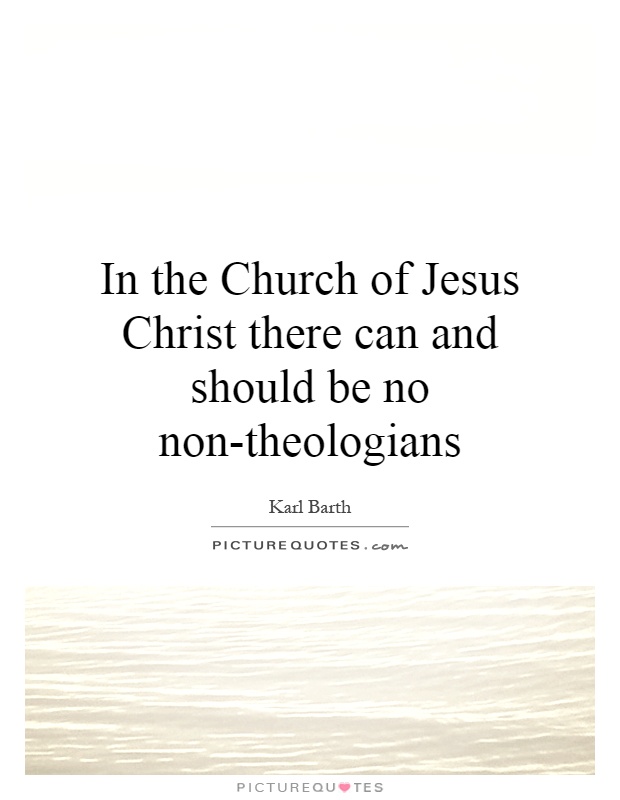
In the Church of Jesus Christ there can and should be no non-theologians
Karl Barth, a renowned Swiss theologian, is often associated with the idea that in the Church of Jesus Christ, there can and should be no non-theologians. This concept stems from Barth's belief in the importance of theology in the life of the church and the role of theologians in guiding and shaping the faith of believers.Barth's emphasis on the role of theologians in the church is rooted in his understanding of the nature of theology itself. For Barth, theology is not simply an academic discipline or a set of abstract ideas, but rather a living and dynamic engagement with the Word of God. Theology, in Barth's view, is the task of interpreting and proclaiming the revelation of God in Jesus Christ, and theologians are called to be faithful stewards of this divine message.
In light of this understanding, Barth argues that all members of the church, regardless of their vocation or background, are called to be theologians in their own right. This does not mean that everyone is expected to have a formal education in theology or to engage in scholarly debates about doctrine. Rather, it means that all believers are called to take seriously the task of reflecting on their faith, seeking to understand the implications of the gospel for their lives, and bearing witness to the truth of God's revelation in Jesus Christ.
According to Barth, the church is a community of faith where all members are called to participate in the ongoing work of theology. This does not mean that everyone will have the same level of expertise or insight, but it does mean that all believers are called to be active and engaged participants in the life of the church. In this sense, there can and should be no non-theologians in the Church of Jesus Christ, for all are called to be witnesses to the truth of God's revelation and to bear witness to the gospel in their lives.
Barth's emphasis on the role of theologians in the church has important implications for the way we understand the nature of Christian discipleship. In a culture that often values expertise and specialization, Barth's vision of the church as a community of theologians challenges us to rethink our assumptions about who is qualified to speak about matters of faith and doctrine. It reminds us that theology is not the exclusive domain of scholars and experts, but rather a task that belongs to the whole people of God.


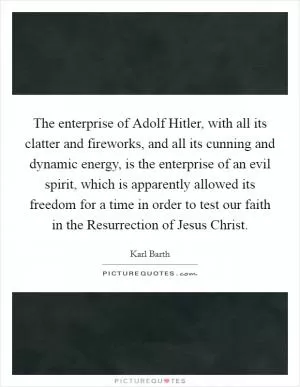
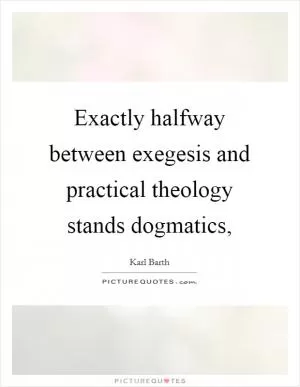



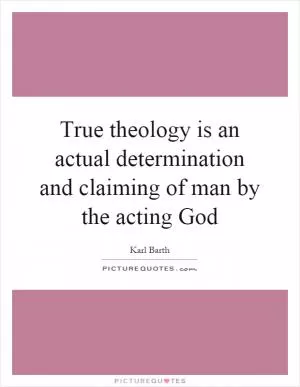

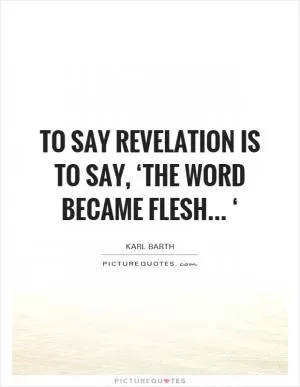
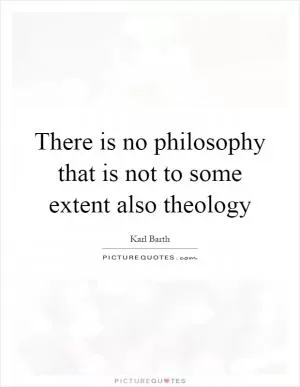

 Friendship Quotes
Friendship Quotes Love Quotes
Love Quotes Life Quotes
Life Quotes Funny Quotes
Funny Quotes Motivational Quotes
Motivational Quotes Inspirational Quotes
Inspirational Quotes